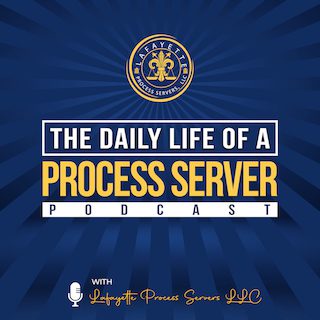Before serving you, do process servers usually give you a phone call?
If you’re in a legal dispute, you may be unsure if a process server will call you before serving you with legal papers. The answer is not clear-cut and can vary depending on different factors. In this blog post, we will examine the regulations and procedures relating to process serving and consider if process servers make a call before serving legal papers.
What is process serving?
To clarify, process serving is a legal practice where a process server delivers legal papers (such as summonses, complaints, and subpoenas) to an individual or organization involved in a court case. The papers must be personally delivered to the defendant or an authorized representative on their behalf.
Is it common for process servers to call before serving legal papers?
Typically, process servers do not call ahead before serving legal papers. This is because they want to ensure that the papers are delivered efficiently. However, in certain cases, process servers may contact you to confirm your current address or arrange a suitable time for delivery. It should be noted that some states require process servers to attempt personal service before trying alternative methods like leaving the papers with a third party.
Is it possible for process servers to pretend to be someone else while serving legal papers?
No, process servers are prohibited from doing so as it is against the law and goes against ethical standards. If someone arrives to serve legal papers while pretending to be someone else, you have the right to confirm their identity and qualifications before accepting the papers.
What are the consequences of avoiding the service of legal papers? If you try to avoid service, the process server may use other methods to deliver the papers, such as mailing them or posting them on your door. However, avoiding service may only prolong the legal process and even lead to a default judgment if you don’t respond to the papers.
If you receive legal papers, it’s important to promptly speak with an attorney to understand your options and legal rights. You should carefully examine the papers to determine the type of legal claim being made against you and the deadline for responding. Failure to respond or seek legal advice could lead to legal consequences or a default judgment.
To sum up, process servers might call or not before serving legal papers, depending on the situation. However, avoiding service or ignoring legal papers will worsen the legal dispute and impact your rights. We suggest that you collaborate with the process server and promptly seek legal advice in case you receive legal papers. Keep in mind that the sooner you act, the higher the probability of obtaining a favorable outcome in your legal issue.
Please be aware that Lafayette Process Servers LLC does not provide legal advice. The information provided in this article is for educational purposes only. We recommend consulting with a licensed attorney to ensure that you comply with your state’s regulations and laws before taking any action. It is important to note that Lafayette Process Servers LLC is a certified, court-appointed, and insured process server.


Recent Comments